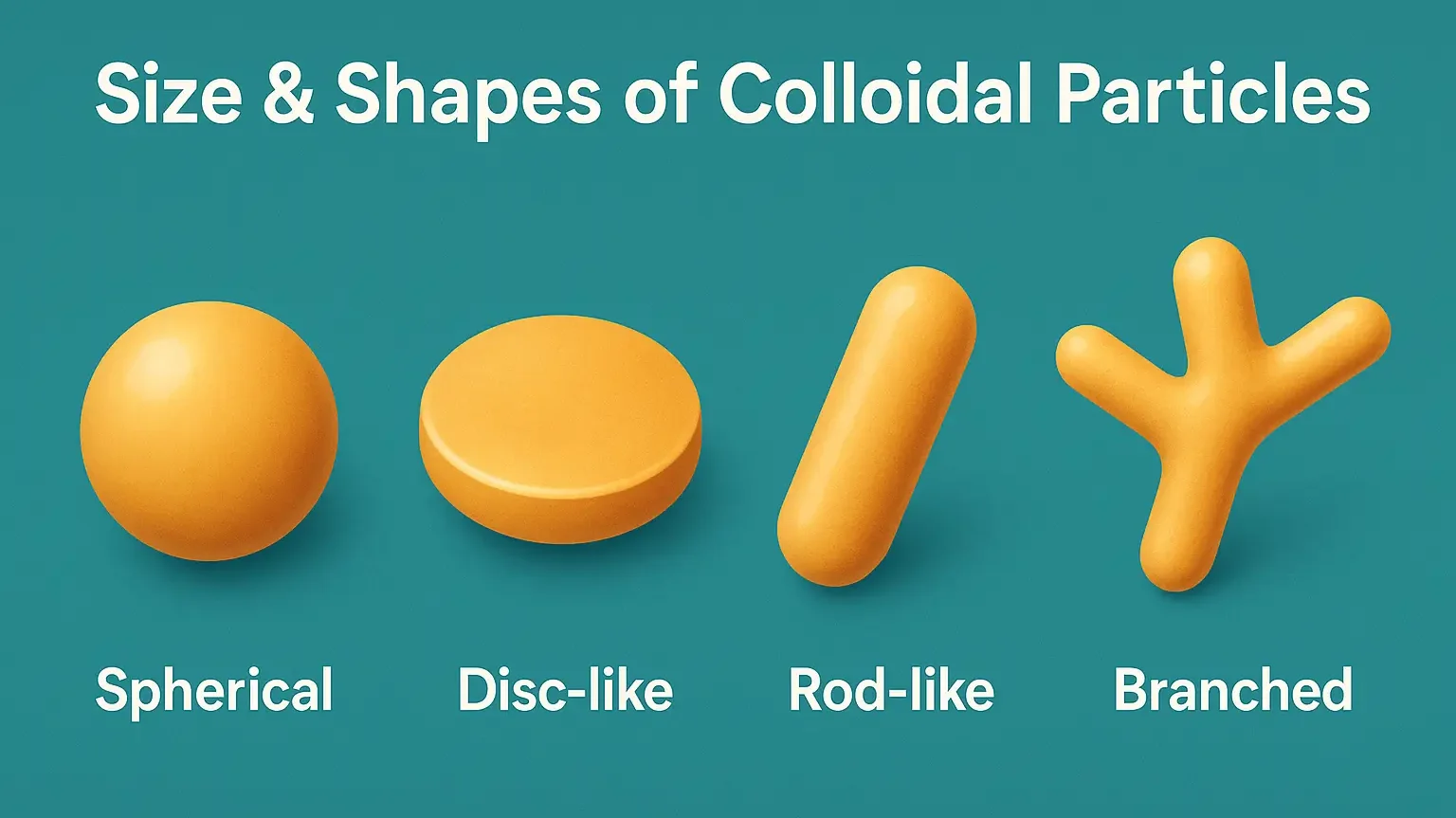- Size & Shapes of Colloidal Particles range from 1–1000 nm, influencing stability and optical properties.
- Size & Shapes of Colloidal Particles include spherical, rod-like, lamellar, and irregular forms.
Size of Colloidal Particles:
- Range: 1 nm to 1000 nm (i.e., 10⁻⁹ m to 10⁻⁶ m).
- Size influences:
- Surface area
- Stability
- Interaction with biological membranes
- Drug release rate
Advertisements
Shapes of Colloidal Particles
- Colloidal particles are not always spherical. They may exist in different morphologies:
- Spherical: Micelles, globular proteins
- Rod-shaped: Some viruses
- Disc-like: Certain clay particles
- Plate-like: Graphite flakes in colloidal solutions
- Thread-like: Polymer chains in solutions
- The shape affects:
- Viscosity
- Diffusivity
- Sedimentation behavior
- Interaction with biological tissues (important for drug delivery systems)
Significance of Shape in Pharmaceutics:
- Sedimentation rate: Non-spherical particles settle slower.
- Flow properties: Affects viscosity and injectability.
- Surface area: Influences drug release and bioavailability.
Advertisements
Advertisements


